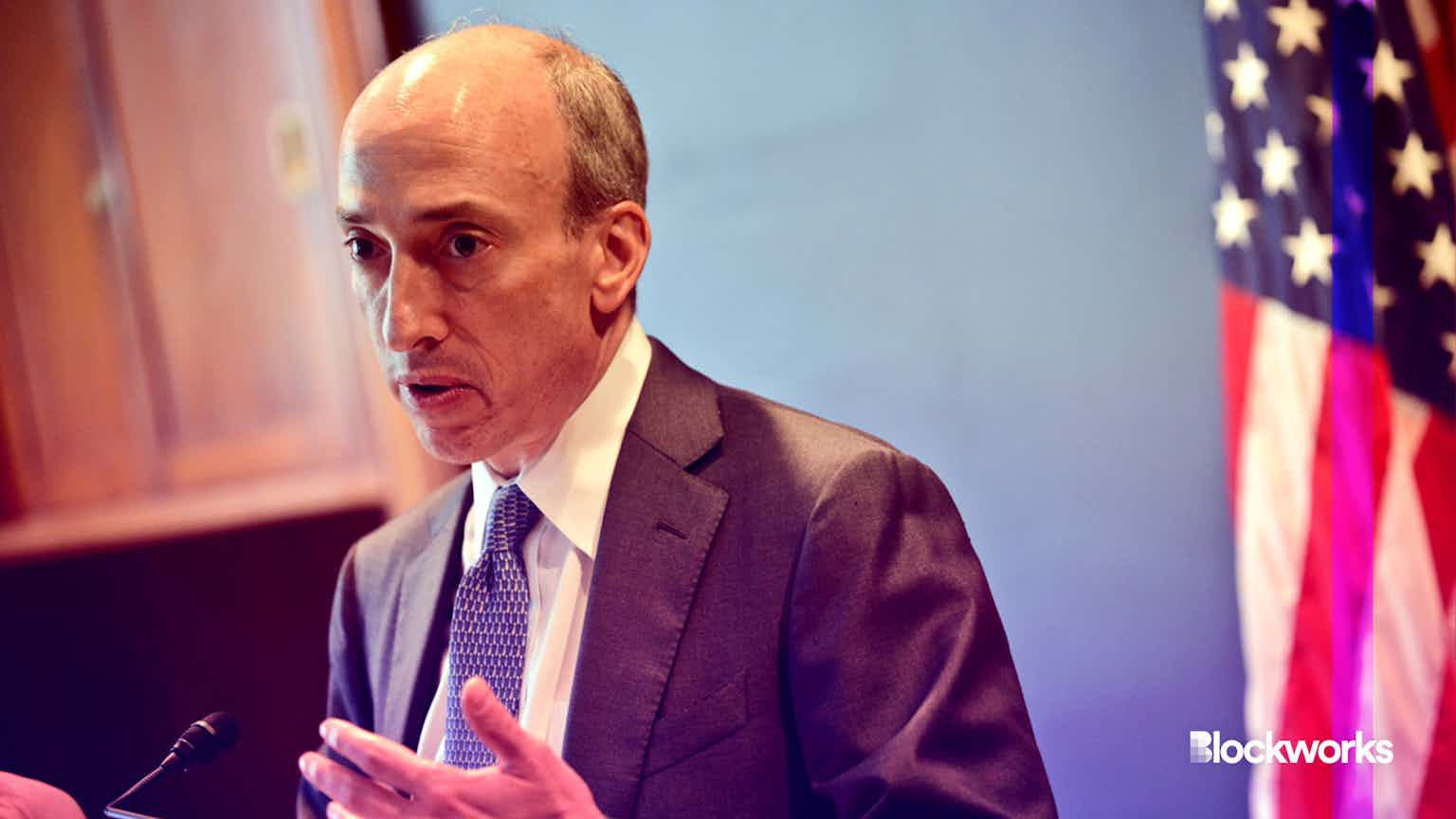US Treasury’s OCC Says Crypto’s ‘Interconnectedness’ Is a Problem
The independent bureau within the US Treasury Department is asking financial institutions to tread carefully when dealing with crypto and related firms

Deacons docs/Shutterstock.com modified by Blockworks
Extended dislocations in crypto markets and ensuing failures of major players should put banks on notice, according to a unit of the US Treasury.
In its semiannual Risk Perspective report, the Treasury’s Office of the Comptroller of the Currency (OCC) said Thursday that it continues to take a cautious approach to cryptoassets.
The OCC pointed toward several “key risks” financial institutions should keep in mind — including a lack of adherence to best risk management practices and the potential for additional contagion.
“The events of this year in the crypto industry have revealed a high degree of interconnectedness between certain crypto participants through a variety of opaque lending and investing arrangements,” the OCC said.
The regulator also advised national banks and federal savings associations interested in engaging in digital assets to first discuss the activities with regulators.
David Gan, founder and partner at venture capital firm OP Crypto, told Blockworks it’s important to distinguish between the centralized crypto industry — highlighted by the OCC — and a decentralized one.
“While centralized entities have continued to show weakness and a lack of maturity in terms of regulatory stability, decentralized entities have continued to work as intended,” Gan said.
Still, while digital assets share some risks with traditional asset classes, additional pitfalls may show up in new ways, the OCC said.
Stablecoins were also a focus of the regulator’s caution, which it said were susceptible to bank run risks — as seen with Terra’s failed algorithmic UST experiment in May.
At the time, the OCC’s acting director Michael Hsu called UST a “wake-up call,” before acknowledging no contagion had hit the banking system as a result of UST’s depegging.
This time around though, the OCC’s assessment sat at odds with its director’s view earlier this year.
“The market stresses revealed that crypto participants may be engaging in highly leveraged trading, in addition to providing brokerage, custody, and exchange-like services to customers,” the OCC said. “The result is a high risk of contagion among connected parties.”





